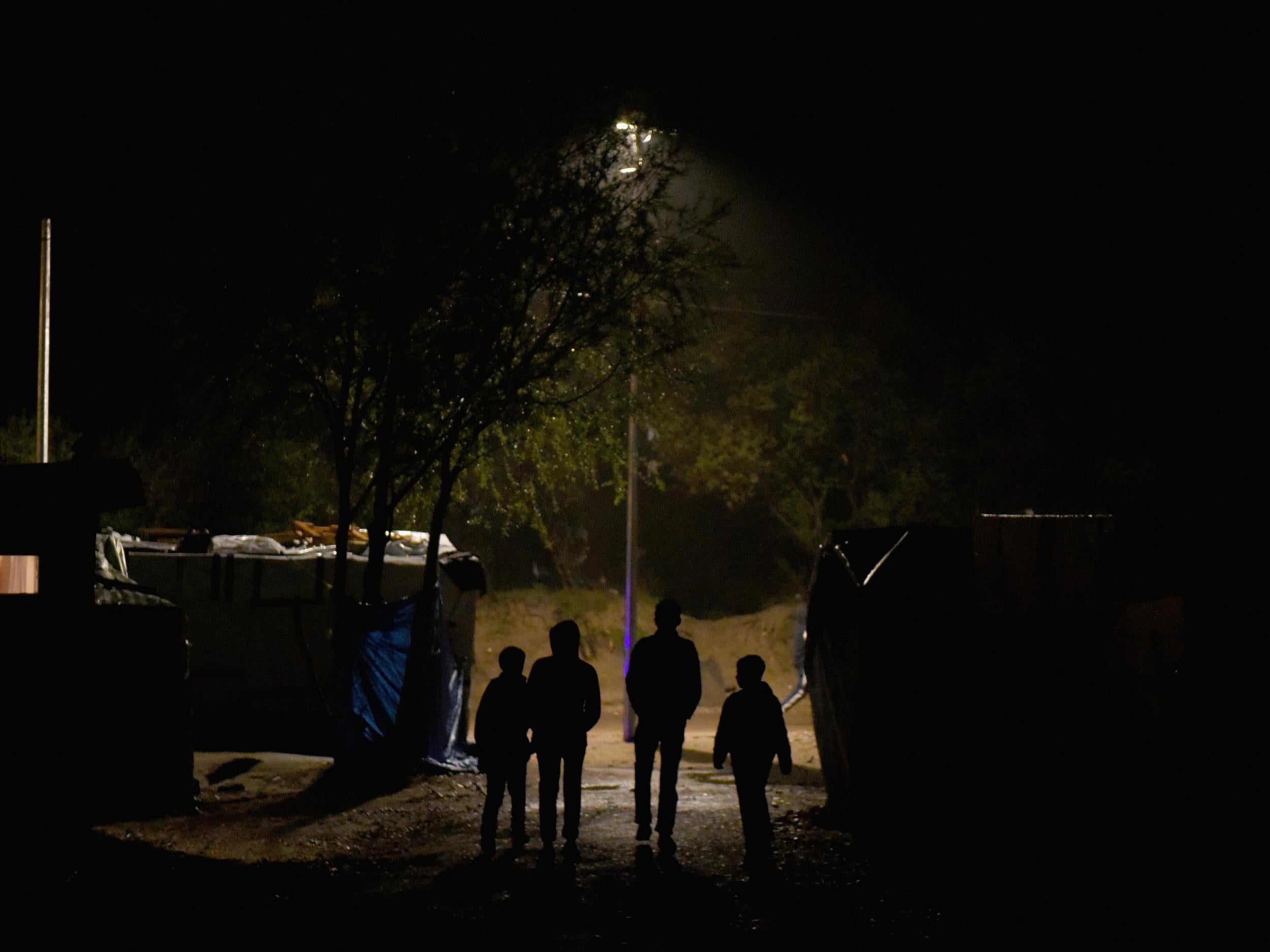More than 120 child refugees missing in UK after being trafficked from France, report finds
Government urged to bolster cross-border child trafficking prevention after report shows children are being exploited by traffickers promising to get them to Britain – and then going missing

Your support helps us to tell the story
From reproductive rights to climate change to Big Tech, The Independent is on the ground when the story is developing. Whether it's investigating the financials of Elon Musk's pro-Trump PAC or producing our latest documentary, 'The A Word', which shines a light on the American women fighting for reproductive rights, we know how important it is to parse out the facts from the messaging.
At such a critical moment in US history, we need reporters on the ground. Your donation allows us to keep sending journalists to speak to both sides of the story.
The Independent is trusted by Americans across the entire political spectrum. And unlike many other quality news outlets, we choose not to lock Americans out of our reporting and analysis with paywalls. We believe quality journalism should be available to everyone, paid for by those who can afford it.
Your support makes all the difference.More than 120 child refugees believed to have been trafficked to the UK from northern France have gone missing, a new report has revealed.
The NSPCC has called on the government to bolster cross-border arrangements on child trafficking after it emerged children as young as 11 had been sexually abused and forced to take drugs by traffickers promising to take them to the UK.
The report, by the charity’s Child Trafficking Advice Centre (Ctac), reveals the number of child refugees trafficked to the UK from France who are missing has increased by 22 per cent since last July, when The Independent reported that the figure stood at 104.
Ctac worked with the Refugee Youth Service (RYS), a Calais-based charity, to locate and safeguard children who were believed to have been trafficked from northern France to the UK. So far, 68 have been located, while 128 are still missing.
Charity workers on the ground condemned the lack of a functioning reporting mechanism for authorities on both sides of the channel to keep track of children who are being moved “under the radar”.
Case files from 196 referrals to Ctac between August 2016 and November last year show children as young as nine have been moved thousands of miles across borders without their parents, and disappeared from camps with limited attempts from officials to find them.
In one particularly concerning case, the report describes how a child was forced to take heroin and was criminally exploited by adults with him in the now-disbanded Calais Jungle.
The case files also revealed children had been sexually abused, subjected to violence from adult smugglers or traffickers and from police and forced to sleep alongside unrelated adults or in rat-infested or waterlogged tents.
The children are among hundreds of displaced people who continue to live without adequate emergency shelter or proper access to drinking water in Calais and Dunkirk, in what the UN recently described as an “inhumane situation”.
Amanda Regan, of the RYS, told The Independent there was a “vacuum of accurate information” regarding formal processes of child protection services in France and legal transfer to the UK.
“A lack of shelter, restricted access to safe drinking water and sanitation facilities and lack of access to education create a catalyst for desperation within minors whereby they seek to leave France and reach the UK through informal means,” she continued.
“Where possible, the relationship with Ctac has enabled us to locate minors we know to have left the area. However, there is still a large proportion of minors who have come into contact with RYS in northern France who are no longer visible nor contactable via their given phone number.
“For these unlocatable minors, there is no functioning reporting mechanism. Much work needs to be done with authorities on both sides of the channel, and indeed across Europe, to create a system of reporting children who are being moved under the radar.”
Almudena Lara, head of policy at the NSPCC, said existing European mechanisms such as Europol, Eurojust and the European Arrest Warrant were vital for finding missing children and bringing child traffickers to justice.
“Countries have a legal duty to protect child victims, so the protections currently offered by cross-border arrangements must be guaranteed after Brexit,” she said.
“Additional arrangements between France and the UK to share information about their child protection concerns and specific health needs would allow us to offer better help to children once they’re located.
“The same resolve and persistence shown by authorities when tracking down criminals who have crossed borders must be matched in searches for vulnerable missing children.”
In light of the findings, Josie Naughton, chief executive and co-founder of charity Help Refugees, said there was a “hostile environment” towards refugees in the UK, Calais and across Europe, and warned this was “destroying children’s lives”.
“This report confirms what we already knew; in the absence of safe and legal routes, children go missing and are at risk of being exploited by traffickers,” she continued.
“State-provided child protection programmes in Calais are practically non-existent. This has to change.
“As this report suggests, the UK, French and European governments have to develop thorough referral systems immediately to prevent more children from being lost.”
It comes a year-and-a-half after the demolition of the Jungle camp in Calais, which was home to about 8,000 refugees before it was destroyed and more than 10,000 at its peak.
Following its closure, people were transported away from the region to reception centres across France, but the number of migrants re-entering the region has been gradually rising in recent months.
The Home Office has been approached for comment.
Join our commenting forum
Join thought-provoking conversations, follow other Independent readers and see their replies
Comments